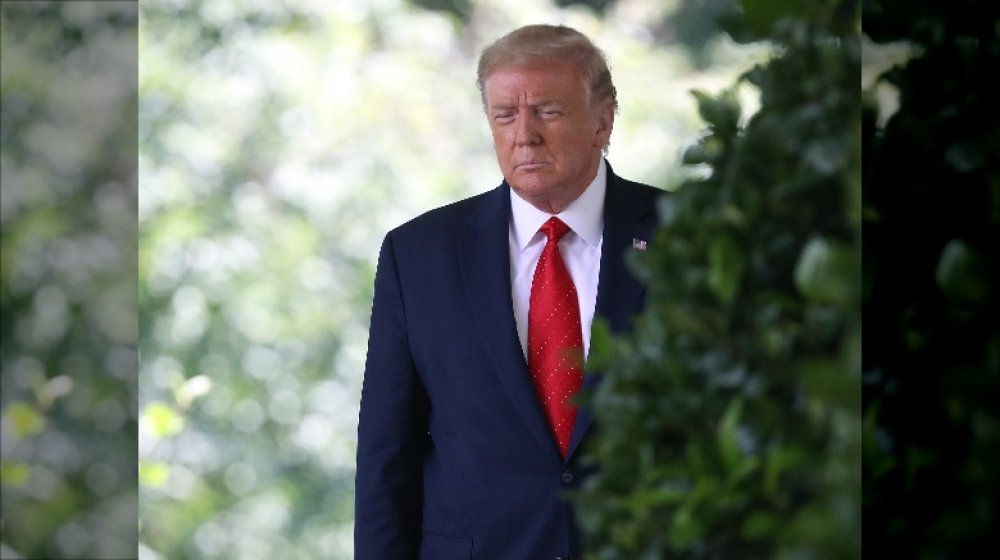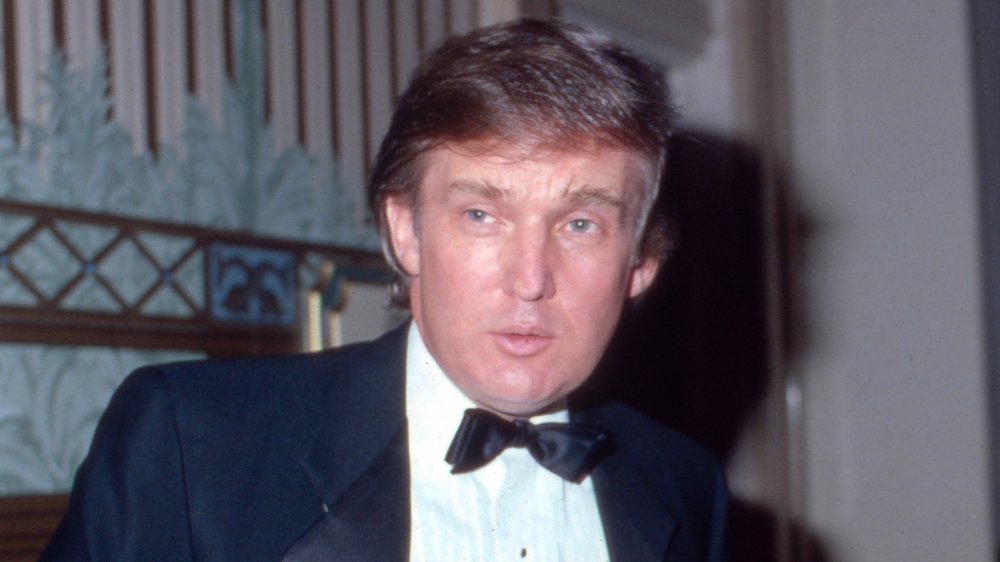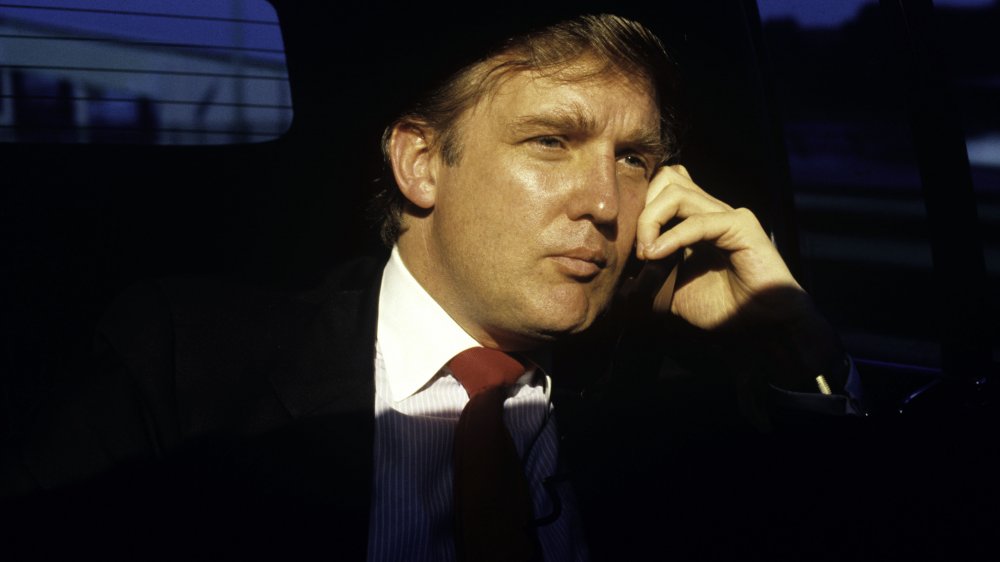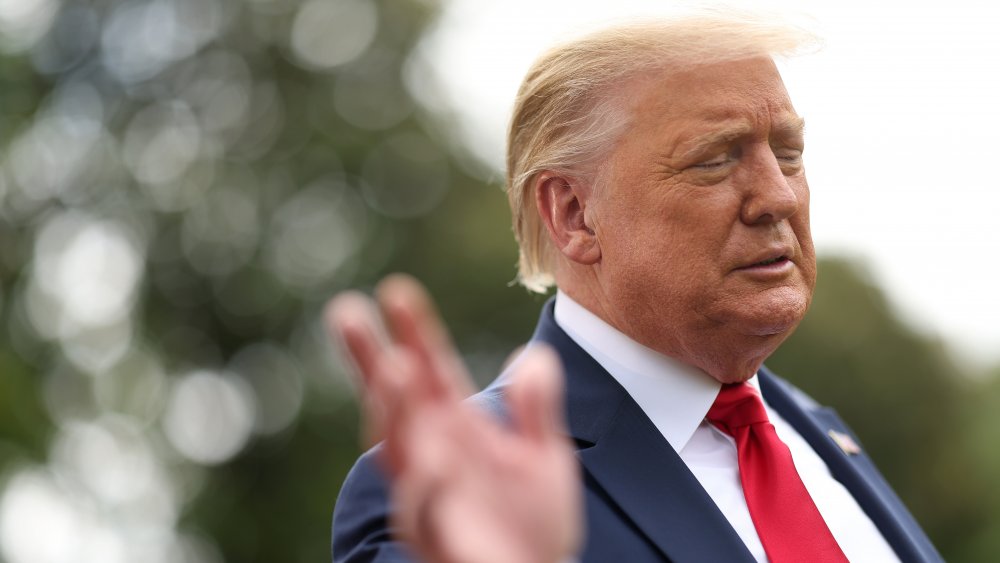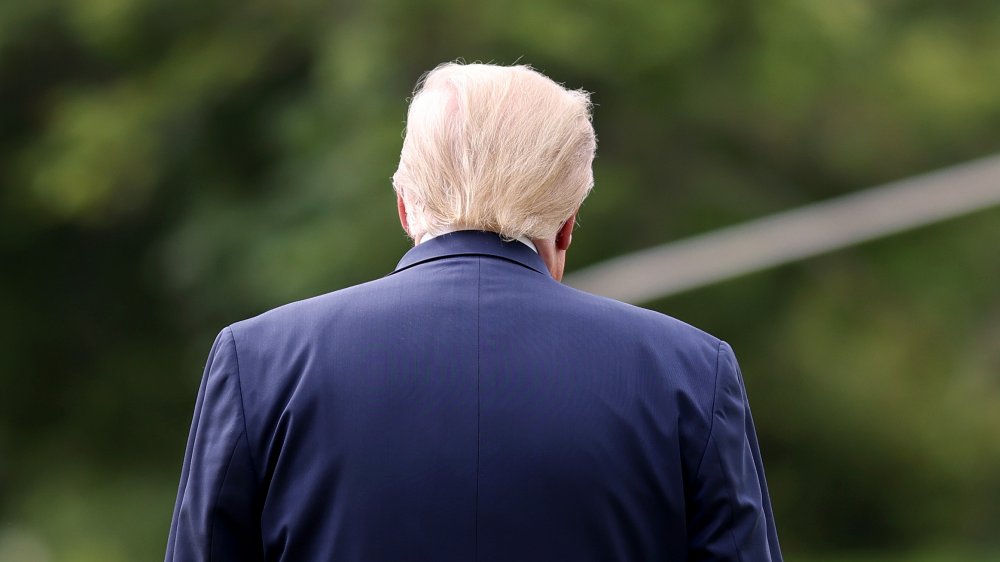Inside Donald Trump's Allegedly Sad Childhood
Considering the onslaught of tell-alls about President Donald Trump and the rest of his brood that have been published ever since his 2016 election win, it seems like there's hardly anything left to say about the divisive commander-in-chief who some have deemed "the worst president" in American history.
But as the sun begins to set on Trump's first term in office, the latest in Trump-related exposés sparked yet another reassessment of Trump's ability (or inability, depending on how look at things) to lead one of the world's most influential nations. It has also provided readers insight into the forces that molded the man we currently call POTUS. As The New York Times reports, the author of the book, Mary Trump, is not only a trained clinical psychologist, but also the president's niece, making her perspective on her uncle entirely unique, to say the least.
But perhaps the most fascinating thing about the book has nothing to do with Donald's politics or policies. In a twist no one saw coming, the biggest shock the book offers is how Donald's childhood clearly groomed him to become the person he is today. And the greatest revelation? As book critic Carlos Lozada of The Washington Post put it: "The real villain of Mary Trump's family tell-all isn't Donald. It's Fred." Who's Fred? That would be Donald's dad, and let's just say he reportedly wasn't a softy.
Was Donald Trump neglected by his parents?
It's transparently clear from the prologue of Mary Trump's Too Much and Never Enough: How My Family Created the World's Most Dangerous Man that her main objective is to provide a sharply contrasting narrative to the one repeatedly put forth by her uncle in the midst of his re-election bid for presidential office; namely, that he is a serious, competent man with the country's best interests in mind. And how does Donald Trump feel about that? Consider the extensive efforts by the Trump family to bar the book from publication as a pretty big clue. But since reviews began rolling out in light of its hard-earned July 2020 publication date, critics en masse have focused on one aspect the numerous Trump tell-alls that have preceded it has been unable to tackle: the president's allegedly abusive upbringing, and how it supposedly damaged his grasp on morality and social mores.
In a recent episode of Slate's What Next podcast between host Mary Harris and Washington Post columnist Shane Harris (no relation), both summed it up best: as per Mary Trump's portrayal of her uncle, his life is driven by two overriding, combative factors — the lack of nurture and love from his parents and the "fear of failure" and "contempt" have created an impossible "void" for him to fill, and an animus to do so in even the most extreme, dangerous measures.
But what, exactly, was Fred Trump's influence over his son? And how did his alleged mistreatment impact Donald? Unfortunately, according to Mary, enough to say that Trump's childhood was "sad" would be an almost egregious understatement.
Donald Trump's niece claims his childhood was a nightmare
One of the major themes of Mary Trump's Too Much and Never Enough is the contrast between the treatment of Donald Trump and Mary's own father, Fred Trump, Jr. — who as Fred C. Trump's namesake was meant to be the heir apparent to his father's real estate empire. When it became increasingly apparent that the younger Fred, affectionately known as "Freddy," did not possess the "killer" attributes the older Trump prized the most, Fred Sr. went cold on Freddy, and instead focused his gaze on Donald. Per Washington Post book critic Carlos Lozada's review, the characteristic that the patriarch sought in his successor was "utter invulnerability," or as it manifested in Donald more directly, as "bullying, disrespect, lack of empathy, insecurity and relentless self-aggrandizement."
Donald Trump's ascension as his father's successor was predicated upon his willingness to adhere to his father's rubric and to emulate it to the point of beating him at his own game — and Freddy's repudiation of it, Mary insinuates, led to a descent into alcoholism and his eventual death in 1981.
Donald didn't come by these family tenets as easily as we might suspect. As per a different Washington Post review of Mary's book, the elder Fred was, for all intents and purposes, a "high functioning sociopath" who "turned his children against each other." Mary further asserts that Donald's upbringing was so fraught with neglect and emotional abuse, that, eventually, the concept of right and wrong became, at best, irrelevant.
'The Great I Am'
According to People's synopsis of Mary Trump's Too Much and Never Enough, Fred Trump Sr. "destroyed" his eldest son and made "a kind of Frankenstein's monster" out of middle son, Donald Trump. In an interview with Teri Gross on NPR's Fresh Air, Mary further asserts that that Fred Sr.'s alleged emotional abuse — she insists (via People) that she never witnessed him being "physically violent" — left Donald in a somewhat stunted state of development.
"I can't really think of any way in which he's evolved or changed from the person he was when he was a teenager," she told Gross, adding, "There's a reason my dad nicknamed him The Great I Am when Donald was 12. ... He meant that, you know, nobody could be as good. Donald was always the best and claimed to be the best at everything and the greatest and et cetera. So yeah, it started very early on."
But among other revelations of Trump's childhood and early adulthood, the things far more shocking within Mary Trump's exposé are acts on a far, far smaller scale that serve as small moments of portent to indicate the person he would one day become — many of which Mary witnessed herself.
The newest Donald Trump tell-all is a cautionary tale
According to Mary Trump (via the Daily Mail), among uncle Donald Trump's many past misdeeds include a long-harbored penchant for ogling the bodies of his own family members (including one in which Donald reportedly ogled Mary, then 29, while she was wearing a bikini, then commenting on how she was "stacked"), repurposing rifled-through gift baskets as Christmas presents for his nieces and nephews, and paying a friend to take his SATs, which ultimately led to Trump's acceptance to the prestigious Wharton School of Business at the University of Pennsylvania. And that's just the tip of the iceberg.
Unsurprisingly, Donald responded to Mary's very personal attacks in kind. Speaking with Fox News' Chris Wallace shortly after the release of the book, Donald called her accusations against his father "disgraceful" and "so stupid and vicious." He countered that Fred Trump Sr. was "a wonderful man" who "liked to win." As for Mary? "She was not exactly a family favorite, and we didn't have a lot of respect or like for her."
Mary Trump's account of life within the Trump family dynasty is gripping, to say the least, and a glimpse into the alleged makings of one of the most polarizing figures in recent memory. But if it's all true, it's also a cautionary tale: while we can't control the conditions we're raised in, we always have the choice to do the right thing. And when you choose otherwise, there's no telling the harm it may one day bring.

